|
Go Beyond Now
Revolution in Paranormal Research
|
Tools, not toys -
for those serious about science. |
More about tools and techniques follows, but first,
here's our own collection of unique equipment guaranteed to help you
Go Beyond Now
Tools:
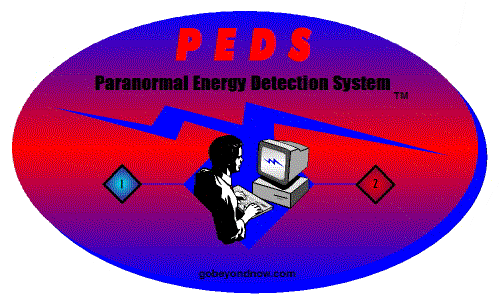 |
PEDS
TM
Paranormal Energy Detection System
PEDS converts the ambient electromagnetic field into audio frequency waveforms
that can be monitored with earphones or interfaced with a computer
to create a powerful and revolutionary new tool for paranormal research.
If it moves, it's
paranormal, and PEDS
will let you know . . .
|
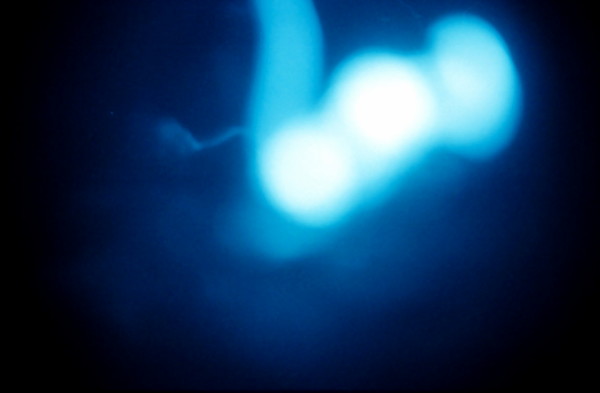 |
UV Photography
The photo at left was
taken with a standard 35 mm film camera
at night in a room that was completely dark.
It was shot without using a flash or any auxiliary light source.
Furthermore, the camera's lens was covered with a special filter
that
blocks all wavelengths of visible light and passes only ultraviolet rays.
Learn more about this
picture and its implications for paranormal research . . . |
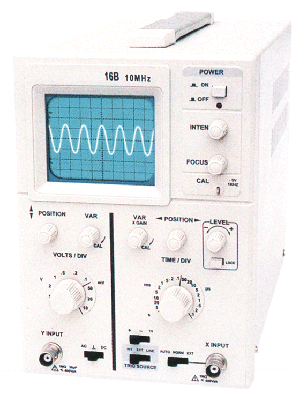 |
INFRASOUND-O-SCOPE
Recent research suggests that
infrasound
(sound waves at frequencies below the range of human hearing)
may produce certain psychological effects associated with
many paranormal-type experiences.
Here's a technique that allows you
to "see" the ambient infrasound waves . . . |
|
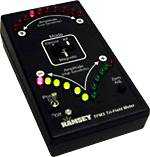
|
RAMSEY ELECTRONICS
TRI-FIELD METER
A true "tri-field" meter at
a fraction of the big name brand's cost,
this meter detects and measures Electric, Magnetic, and RF fields.
Its use of LED indicator lights instead of a pointer dial
could prove to be a big advantage in dark settings too.
|
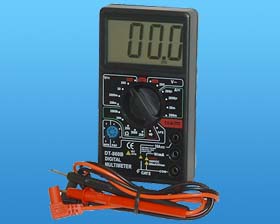 |
Digital Volt Meter /
Multimeter
One of the most common
experiences reported during paranormal investigations is this:
"The battery died."
Investigators will spend
hundreds, even thousands of dollars on hi-tech equipment
when it seems that one of the best "ghost detectors" available might be a
simple battery!
Doesn't it make sense to have a means for checking your battery's voltage
before beginning
an investigation, and once again after what appears to be premature battery
death? Duh. |
Techniques:
Go Beyond Now
Rule #1: The equipment is not the experiment.
The recent advancements in electronic
technology have been both a
blessing and a curse for paranormal research.
On the curse side, for example:
There seems to be an
unwritten rule that if you don't have the most sophisticated equipment
available, then you can't be doing serious research.
The complementary and equally erroneous rule is that if you do have the latest and greatest gear, then you
are doing serious research.
Sure, I think we should be taking advantage of
all the potential resources available to us in this field of research, but so
many paranormal enthusiasts seem to have lost sight of the fact that their technical gadgets are
merely tools, and, like
any tools, the quality of work that can be done with them depends on the user
and how skillfully that user is able to apply the tool to the job at hand.
Being able to skillfully apply the tools of
technology to scientific research means much more than knowing which
buttons to push and where the cables plug in. There is a certain degree of artistry required in the design of
a good research project; a high level of both abstract and critical
thinking is needed in the design and preparation stages. First, you need to figure
out exactly what it is you're trying to accomplish and then you have to
formulate a plan for employing your available technology (either simple or
complex) in a systematic and properly controlled
manner so as to produce meaningful results. Simply walking around a building snapping
photos, watching EMF meters, running tape recorders, etc., does not in and of
itself constitute an effective research project, nor does it produce any meaningful
results!
This is a great time for paranormal
investigators
to step back from their fascination of technology for technology's sake and
start getting back to basics. Consider taking a class in electronics, photography,
physics, chemistry, psychology, etc. Learn about the design and execution of
a viable scientific experiment. Read some books - you know, those
things with words printed on paper. Talk to people who have
experience in "normal world" applications with the same kinds of hi-tech equipment you're
planning to use in your investigations and then get some normal world experience with it yourself
before trying to jump the paranormal border. Above all, learn to think!
Using fine tools does not make
one
a good craftsman,
but
a good craftsman
can do fine work using simple tools.
Here's a well-written article on the
scientific method from Wikipedia:
Scientific Method
Please read it. Some
try to claim that paranormal studies can't be subjected to the
scientific method.
That's just an excuse made by people who don't have what it
takes to do the job.
Here's an intermediate level
guide to conducting experimental science projects:
Experimental
Science Projects
Shouldn't paranormal investigators be held to at
least the same standards that are required for high school science fairs?
If not, what's
the point?
Can you think of ways the scientific method can be applied to
studying things paranormal?
The material on this website (except where otherwise indicated) has
been prepared by J. Hale.
All original content is copyright protected and all publication rights are reserved.
Effective September 1, 2006, and beyond.




